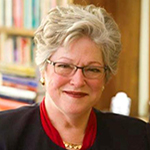 By Molly T. Marshall
By Molly T. Marshall
The stunning results of the election in Myanmar are unfolding, and the world is witnessing a remarkable movement toward greater democracy after decades of military rule. The government has promised a peaceful transition as Aung San Suu Kyi’s National League for Democracy has swept the great majority of parliamentary seats.
One of my friends in Yangon wrote, “We are all excited and anxious at the same time, hoping and praying that the election results will lead to real change and genuine peace and democracy.” He further writes: “We are overwhelmed with joy. It is unbelievable!” Eighty percent of voters cast their ballot with a red-smudged finger on Nov. 8, and thus it is the “people’s victory.” For many, it was their first time to vote.
It is understandable that people supporting the NLD would be cautious in their celebration. When this same party won in general elections in 1990, the military supported the ruling party and denied NLD its rightful power.
Aung San Suu Kyi has requested that people be calm, patient and mature in their response to winning; it is wise not to humiliate the ruling party for any constructive collaboration to ensue. The magnitude of defeat is clear as the NLD expects to win about 80 percent of the votes when the final results are published. She will need to temper her own statements about “being above the president” to model what she is requesting of her party members.
My friend, a professor of ethics at Myanmar Institute of Theology, observed, “I believe that God has been working in our history and now is the kairos.” It takes great faith to persevere in believing that God works through even crude political processes, but that is his conviction.
Persons of faith do believe that God is at work in this world, often imperceptibly and slowly. Martin Luther King Jr.’s famous statement comes to mind: “The arc of the moral universe is long, but it bends toward justice.” King did not believe that a moral universe occurs only through divine agency, however; such requires the patient and diligent efforts of those who believe the world can become more just.
In the heated rhetoric of America’s presidential campaign, it may be hard for persons of good will to perceive that God is at work. Ironically, the more candidates talk about God (or speak for God!), the more difficult it becomes to sense where a road to justice lies. And the tendency to demonize the opposition undercuts moral authority for the future leader.
The penchant for personal attack sullies the electoral process and contributes to the cynicism about participation. When has a national election in the United States garnered a turnout of 80 percent? Greater clarity about what is really at stake for those without basic resources for living would help; greater confidence in the capacity of a two-party system to govern is essential.
Observers will be keenly interested in how Myanmar navigates this tsunami of political change. It will be the first time since the 1962 coup that the government is not controlled by the military, and many Baptists in the land hope for greater religious freedom in the emerging democracy. Yet, Buddhism’s inscribed status as “favored religion” may continue to constrain religious minorities in unforeseen ways. The constitution still grants the ruling party, primarily comprised of former military officers, key powers, which they must use judiciously.
It truly it a kairos moment, and I am praying for the kind of transfer of power that honors the will of the people and grants hope. That is surely God’s will for Myanmar.
